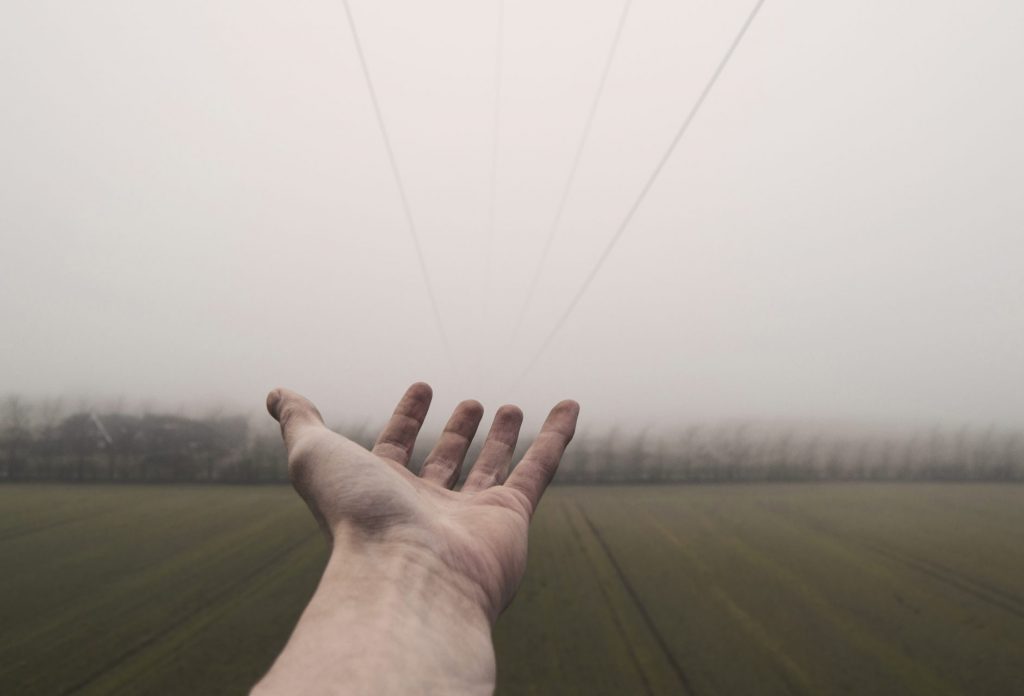Today’s post is written by Tina Welling, author of Writing Wild (New World Library).
Intuition and writing go together like clouds and rain. Or more aptly, my image is of clouds holding then releasing rain, the way our intuition holds and releases ideas, visions, connections, dreams.
Many of us are puzzled by that word intuition. Some of us call it the Muse. We say the Muse visited us or the Muse failed to show up. With this notion we hold the bundle of creative energy outside of ourselves. As if it wasn’t a part of us, as if we didn’t have access to it or a sense of responsibility for it.
Why would we want to disguise the partnering of our intuition and creative energy by personifying it as the Muse, a fickle being that is separate from us?
The good news is that our intuition belongs to us, it doesn’t just show up only if it feels like it; it is always present and available to us. Our intuition is the receptor of our direct knowing, of our sensing, of our making meaningful connections. And our intuition guides us not only in our creative writing, but also is our well-being, giving us direction to personal care in our health, relationships, environment, and in all our areas of aliveness. As far as our intuition is concerned there is no difference between our insides and our outsides. It’s all one. It’s our rational brain that wants to divide everything into separate compartments.
Replacing the idea of the Muse with an acknowledgment of our ability to directly know without a rational process puts both the burdens and the gifts completely in our own hands. It’s saying that we own the source of our longing and the means of expressing it. That we can manage to be still, listen to ourselves, and take action on what we discover within. That is writing from our intuition.
This morning I was sitting with several local writers—a filmmaker, two novelists, a travel writer, non-fiction writer, and me who has written both novels and a non-fiction book—all of us published. Several years ago we made up a reason to have a sort of club and on the first Tuesday of each month we meet at a café for breakfast and exchange news, tell stories, and discuss how our work is going . . . or is not going. This morning Martin said he’d been stuck for months and was afraid he’d never reach his goal of completing his novel in time. He struggled with writing his intended 1000 words a day, with living in Wyoming while writing about Pennsylvania, with making fracking into an exciting topic, with structuring his novel, and struggling even with coming up with a title. The more he explained how he was trying to figure things out, the more I realized he was snagged by our culture’s admiration of rational thinking.
Accomplishment, goals, organization, progress, structure, and, oh yes, fears are all left-brain, rational activities. Creative people need to stick with the gifts of the right brain until we’re at the editing stage of our work. We need to allow daydreaming, discovery, sensing, connecting ideas, envisioning, experimenting, imagining. Time restraints and word counts are energy lids at the creative stage.
To access intuition, begin with these five steps:
- Be kind to yourself. Harsh self-talk stops the process of creativity.
- Move out of the planning mind and into the dreaming mind.
- Step outside. Take in the natural world. It is the macrocosm of creative energy and offers us ease.
- Breathe. Feel your heartbeat. Send aliveness into your body.
- Tune into your senses, all five—sight, sound, smell, taste, and touch.
Several years ago Penney Peirce wrote The Intuitive Way and after I read her book I began working on my own book, Writing Wild. Time passed and we both wrote more books, and during it all Penney and I kept in touch. One day I realized—with the help of Penney’s books—how intuition and creative writing were so deeply entwined. In fact, writers needed to understand their intuition in order to be working creatively. I talked to Penney about doing a workshop together; she was enthused. And it’s happening this coming spring, an immersive four days of putting the two things together that, in fact, have never been separate: intuition and writing. We know that part of writing is becoming conscious of what our attention brings us. And if we are not conscious of our intuition at work, we are not opening to it or trusting it.
Our intuition is a deep knowing, often quiet enough for us to easily ignore. Once we learn to become conscious of it, listen to it, honor it, and follow its lead, our intuition offers us insights, an authentic perspective, an enhanced sensual awareness, and so much more, which then brings us information belonging especially and uniquely to us. It brings us our own personal material for our creative use. As creative writers, intuition is our most valuable resource. Many of us are likely dipping into it without our conscious awareness, which limits its usefulness.
Tapping into intuition coupled with guidance on how to frame its information into words is the complete toolkit for writers. So if you’re stuck at any point along the way of making your dream of writing come true, look for guidance that can show you how to work with the inner partnership of right-brain intuition and left-brain rationality. It takes both halves to make a whole.
As the poet Mary Oliver says:
Pay attention.
Be astonished.
Tell about it.
Contact Tina at Tina@TinaWelling.com for information on the INTUITION & WRITING WORKSHOP, held April 11–16, 2018 on Hutchinson Island, Florida.
